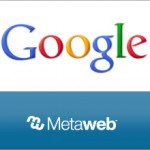 San Francisco — Google’s display ad business is about to explode (in a positive way), according to a new report. The search engine colossus has teamed up with Omnicom Media Group for online display advertising, an area the internet giant is attempting to expand in as it looks for revenue streams outside of its traditional search ads.
San Francisco — Google’s display ad business is about to explode (in a positive way), according to a new report. The search engine colossus has teamed up with Omnicom Media Group for online display advertising, an area the internet giant is attempting to expand in as it looks for revenue streams outside of its traditional search ads.
Under the two-year global partnership, which was revealed yesterday, Omnicom is expected to spend hundreds of millions of dollars to buy display ads for its clients through Google over the next two years, according to a report in the Wall Street Journal.
The deal comes as Google relentlessly strives to find new sources of income beyond search ads. In return, Google will work with Omnicom to create a global “trading desk” that allows the company to buy display ads more easily on Google’s ad exchange, as well as provide Omnicom with analytics data on the effectiveness of its ad campaigns.
The group, which owns media agencies OMD and PHD, is geared up to place millions of dollars’ worth of display ads for its clients, which include PepsiCo, McDonald’s, Apple and Sony, on Google sites over the next few years. Omnicom says it currently has to use its own technology to buy ads on Google’s auction-like exchange system. However, the partnership is not exclusive, with Google still able to work with other ad firms. Similarly, Omnicom will be able to work with other technology companies and sell its display ads through rivals such as Yahoo! and Microsoft.
Google is seeking to revitalize the market for displays ads as the medium comes under increasing pressure as marketers question the effectiveness of the ads — only a fraction of the consumers who visit web pages actually click on the displays. It has made a significant push into the display ad space, buying display ad technology firm Teracent and ad network DoubleClick.
Both Google and its rivals are trying to make display ads more attractive by developing new exchange systems which enable advertisers to target specific markets. They are now trying to entice demand by entering partnerships with ad companies and websites. Barclays Capital analyst Doug Anmuth expects such efforts to impact on the market this year, with Google forecast to make more than USD1bn from display ads, up 40% year-on-year.
Google is understood to be looking to diversify its model away from being perceived as just another search engine. Google, which also owns video-sharing site YouTube, will then supply Omnicom with pinpoint data and research on how well the advertising has worked.
However, it faces a demanding competition with the decline of online web display advertising, with Europe alone experiencing flat year-on-year figures in the display market, with an actual decline in mature European markets.


